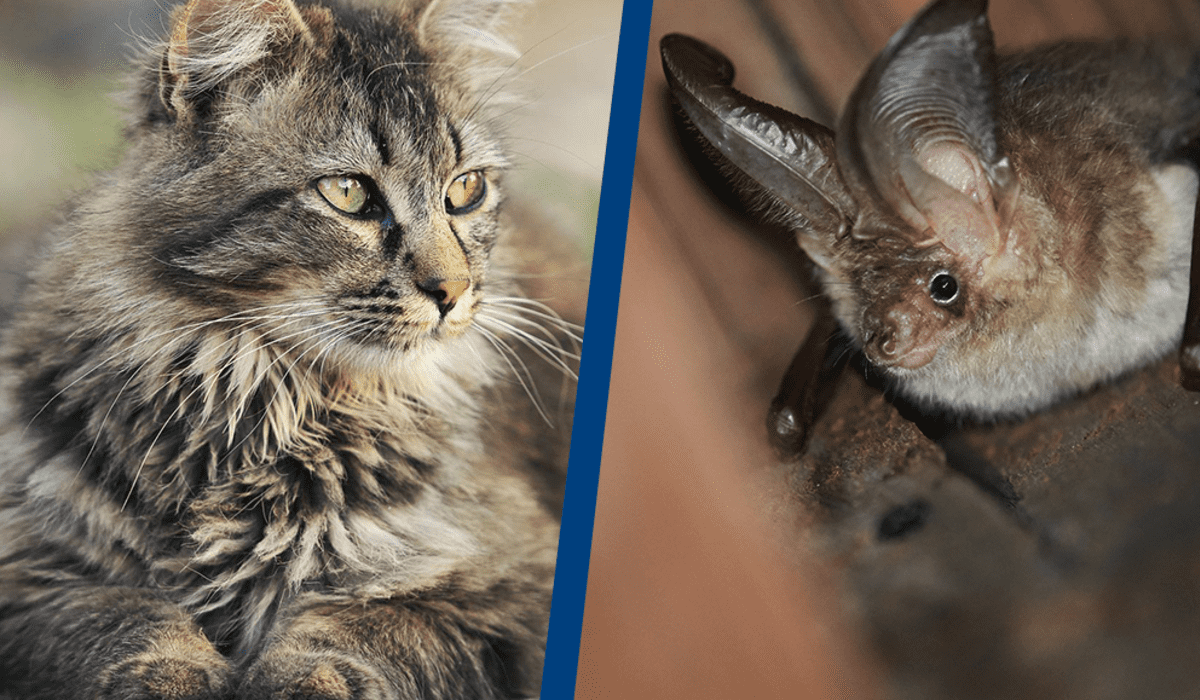Rabies is one of the deadliest viral diseases in the world. Once symptoms show, it is almost always fatal. According to The World Health Organization (WHO), “Rabies is a vaccine-preventable, zoonotic, viral disease. Once clinical symptoms appear, rabies is virtually 100% fatal. In up to 99% of cases, domestic dogs are responsible for rabies virus transmission to humans.”
Yet many people still underestimate how dangerous it is. And, rabies doesn’t only come from dog bites. The fact is, several animals can spread this killer virus, and some of them will surprise you. Knowing which animals to watch out for could save your life.
Here are 10 animals that can spread rabies to humans.
RELATED: 5 diseases you can catch from animals
1. Dogs
Dogs spread many illnesses, but rabies is by far the most common and deadly. In Africa and Asia, most rabies deaths in humans come from dog bites.
When a rabid dog bites or even licks an open wound, the virus can enter the body. Vaccinating your pets is the surest way to prevent this.
2. Cats
Cats may seem harmless, but they can also contract rabies if unvaccinated. An infected cat can spread the virus through scratches or bites. Street cats are especially risky since they are rarely vaccinated.
YOU MIGHT LIKE: 5 reasons you should consider getting a cat as pet
3. Bats
Bats are common carriers of rabies in the Americas and also exist across Africa. A bat bite may be so small you don’t even notice, but its saliva can carry the virus. In some countries, rabies outbreaks have been linked to bat populations.
4. Monkeys
Monkeys, found in many parts of Nigeria and other African countries, can also spread rabies. Tourists and locals alike have been attacked by infected monkeys in crowded areas or forests. Scratches and bites from monkeys should never be ignored.
EXPLORE MORE: Did you know monkeys in Bali use stones as sex toys?
5. Foxes
Though not as common in Nigeria, foxes are well-known rabies carriers globally. In Europe, rabid foxes have caused outbreaks, and their bites can be fatal if untreated.
6. Raccoons
Raccoons are one of the main wildlife carriers of rabies in North America. If you travel there, be aware that they are considered a top reservoir for the virus.
READ THIS: 5 horrible diseases that came from animals
7. Jackals
Jackals, found in parts of Africa, can spread rabies through bites and attacks on livestock or humans. Their aggressive behaviour when infected makes them especially dangerous.
8. Wolves
Globally, wolves have been linked to rabies outbreaks, especially in colder regions. Although rare, human cases from wolf bites do exist, showing that the virus is not limited to domesticated animals.
9. Skunks
Skunks are infamous rabies carriers. For Nigerians who travel abroad, it’s important to know that contact with these animals can be risky.
10. Cows
Yes, cows! It may sound shocking, but even cows can carry rabies. If infected, a cow’s saliva can spread the virus through bites or licking open wounds. Farmers have occasionally been exposed this way.
SEE THIS: 5 health risks of sexual intercourse with animals
How does rabies spread from animals to humans?
Rabies spreads mainly through saliva. This happens when an infected animal bites, scratches, or even licks broken skin.
The virus travels through the nervous system and, once it reaches the brain, causes deadly symptoms. Even a small bite can be enough to transmit rabies.
Symptoms of rabies in animals to watch out for
If you notice these signs in an animal, stay away immediately:
-
Unusual aggression or sudden change in behaviour.
-
Foaming at the mouth or excessive drooling.
-
Difficulty swallowing or choking-like sounds.
-
Staggering movements or paralysis.
What to do if you’re bitten or scratched
-
Wash the wound immediately with soap and running water for at least 15 minutes.
-
Go straight to a hospital for rabies vaccination. Don’t wait for symptoms to show.
-
Avoid home remedies. Once symptoms of rabies begin, survival is almost impossible.
Protect yourself
Rabies may be rare, but when it strikes, it’s deadly. Protect yourself and your family by vaccinating pets, avoiding wild or stray animals, and seeking urgent care if bitten.
The World Animal Protection reminds us that “Rabies is a fatal viral infection, but it is almost 100 per cent preventable…”
Remember, rabies has no cure once symptoms appear, but prevention and early treatment can save your life.
RECENT: Is coconut good for pregnant women? Here’s what experts say
>
